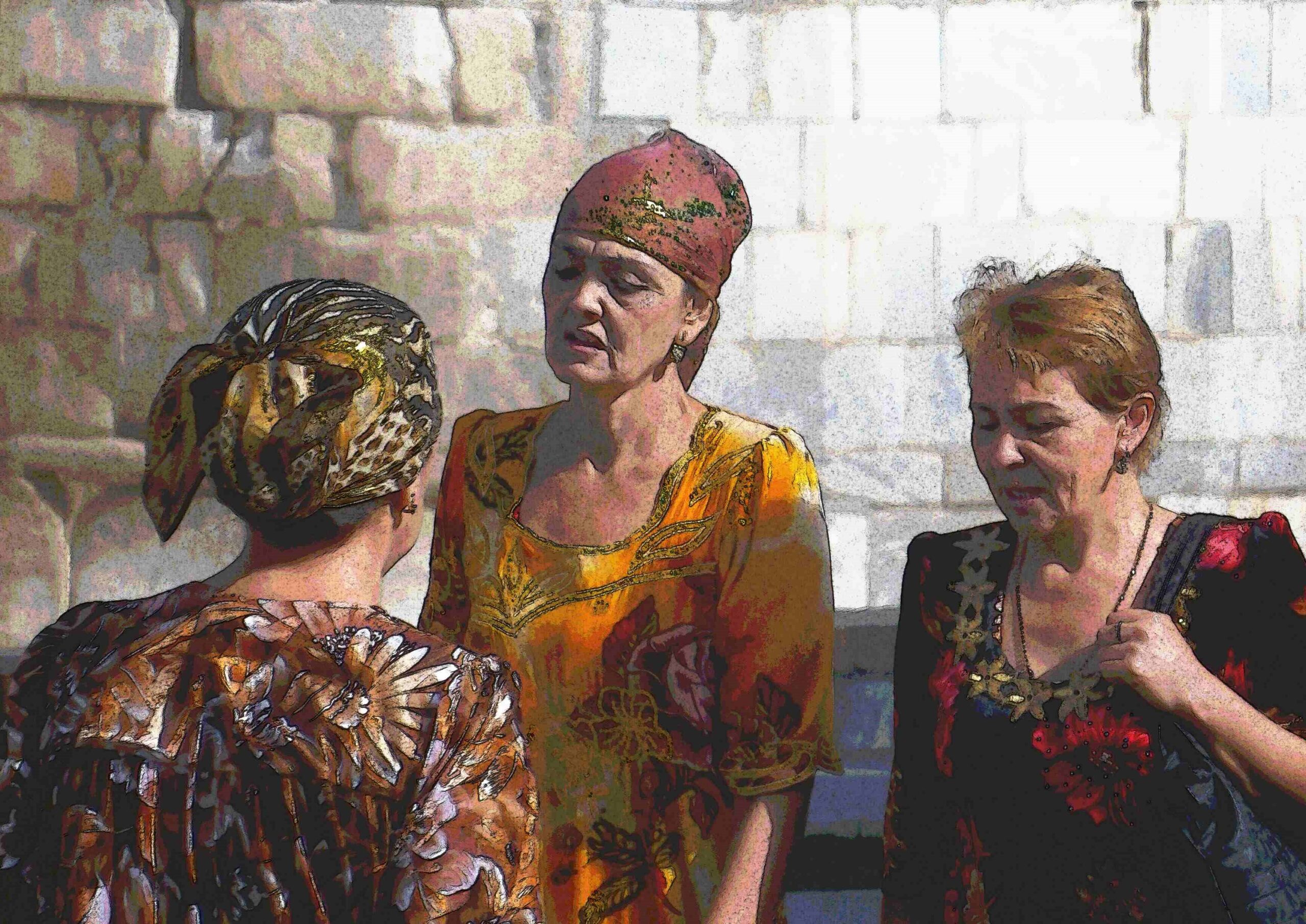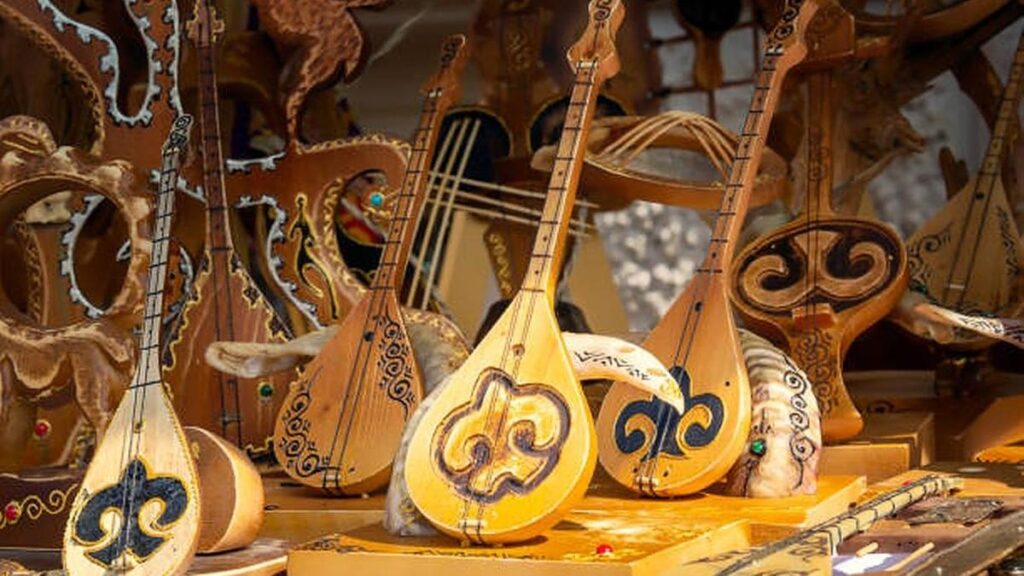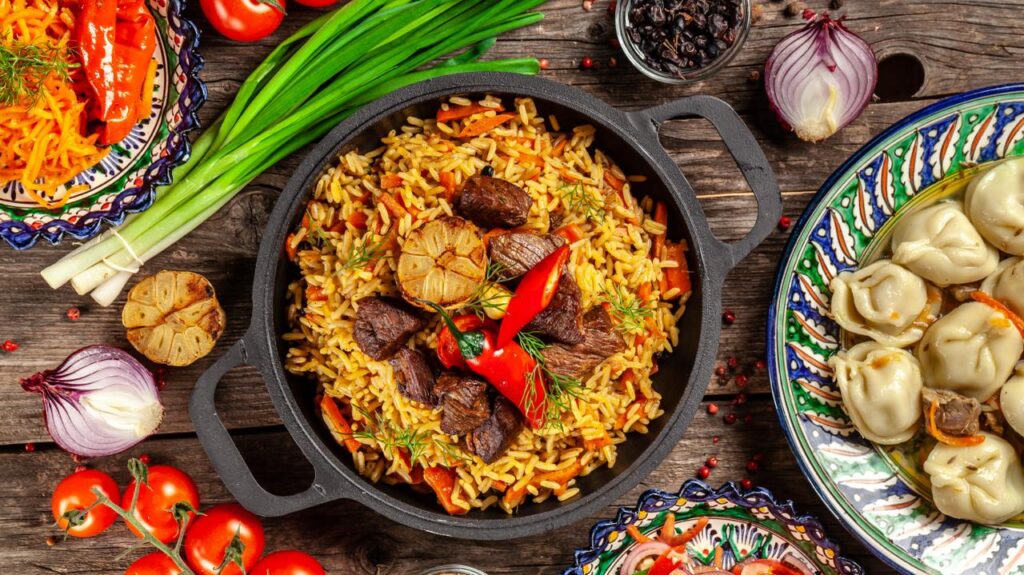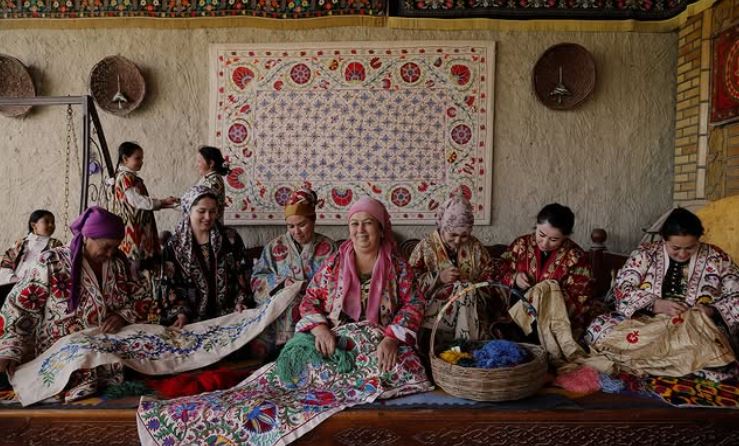Every year, January 1 marks Global Family Day, an idea first introduced in 1997, when the United Nations launched the International Decade for the Culture of Peace and Non-Violence for the Children of the World. By 1999, the had UN invited its members to dedicate the first day of the year to developing strategies for peace, and since then this day has been observed annually as a reminder of the role families play in fostering a peaceful and compassionate world.
This year, The Times of Central Asia takes a closer look at family customs in Uzbekistan and Kazakhstan, nations where family values are deeply woven into the fabric of life.
In Uzbekistan, family is at the heart of society. Respect for elders and care for the young are not just taught — they are lived and celebrated daily. Parents and children share close relationships, turning to one another for advice and support.
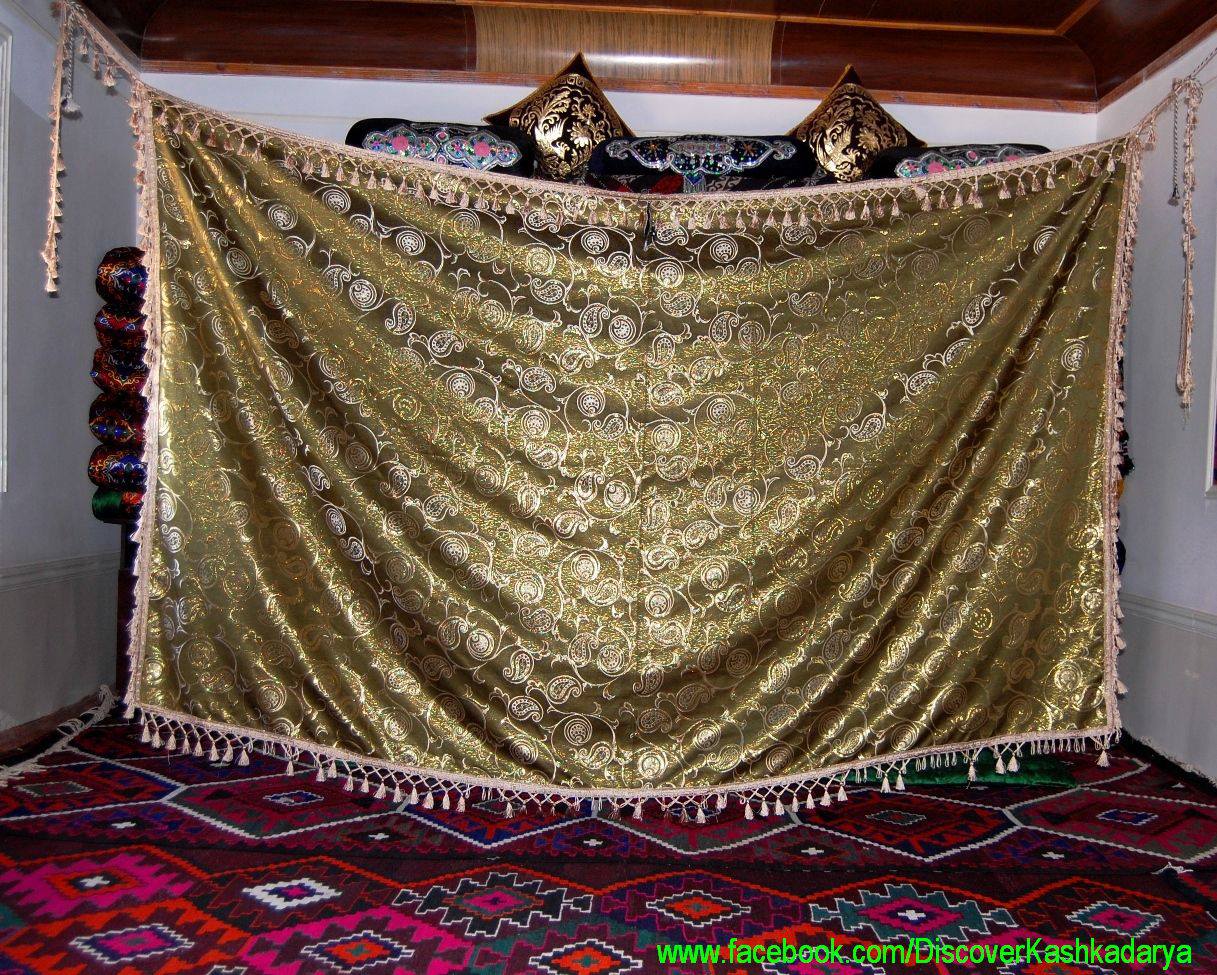
Chimildiq canopy; image: Facebook Discover Kashkadarya
Traditions add a rich layer to these connections, keeping families united. Weddings, for example, are deeply symbolic. One notable custom is the Chimildiq, a ceremonial canopy for newlyweds which marks the start of their life together and serves as a space for blessings and well-wishes for their future. Another beloved tradition is the Beshik tuyi, a joyous celebration of a baby’s first cradle wherein relatives and neighbors come together to share in the happiness of welcoming a new life, underscoring the communal nature of Uzbek culture.
“As an Uzbek woman, I’ve always been fascinated by the beauty and meaning behind our customs,” Rohila Mullayeva told TCA. The mother-in-law to three brides, for more than 20 years Mullayeva has been serving as a kayvoni, one appointed by women to preside over table work at weddings and other ceremonies. “They’re not just rituals but expressions of love, respect, and hope for the future,” she said. “Take Chimildiq, for instance – a special moment for young couples starting their journey together. One of the rituals in the ceremony is when the bride and groom give each other honey on their fingers. This is a sweet symbol of the joyful moments they hope to share in their life ahead. Another part of the ceremony is both meaningful and playful — when the groom attaches boiled eggs his bride’s dress. This gesture is a heartfelt wish for the couple to have many children.
“Then there’s the Beshik tuyi, the cradle ceremony, which is one of the most cherished traditions in our culture. When a bride gives birth to her first child, she is honored in a beautiful custom called Sallabandon, which is part of Beshik tuyi. An elderly grandmother, someone respected for having a big family, places a salla, a headdress wrapped in a special cloth, on the bride’s head,” Mullayeva explained. “During this ceremony, a kurpacha — a soft, colorful quilt — is placed under the bride’s feet, a gesture of respect and care. The meaning behind Sallabandon is deeply symbolic; it marks the bride’s transition from being a girl to a woman, a mother who has now joined the ranks of those who nurture and guide the next generation.”
According to Mullayeva, these traditions may seem simple, but they carry a huge depth of meaning, reminding us of the value we place on family, the importance of blessings, and the joy of welcoming new life.
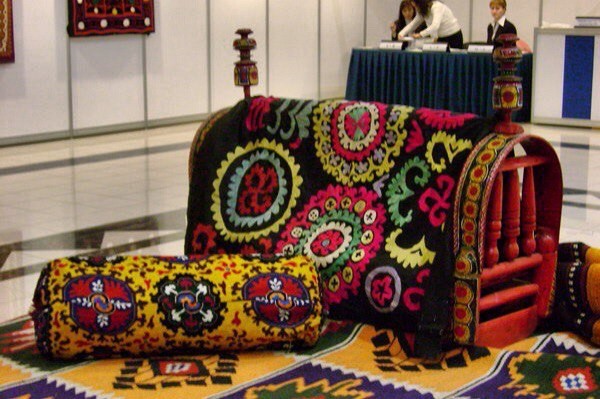
Beshiq Tuyi; image: VK Viktoria Larina
In Kazakhstan, family holds a similarly sacred role. Despite transitioning from a nomadic to a settled lifestyle, the Kazakh people have held onto their age-old customs with great pride. Hospitality stands at the center of their way of life, with guests treated to warm welcomes and the finest offerings in the household. The tradition of Zheti ata, which requires the knowledge of seven generations of paternal ancestors, highlights the importance of lineage and family continuity. The ritual of Betashar, where a bride’s face is unveiled, symbolizes the union of two families. This significant custom has even earned a place on UNESCO’s list of Intangible Cultural Heritage.
Despite rapid modernization, Kazakhstan remains deeply connected to its rich familial traditions, which are considered the bedrock of national identity. Ethnographer and historian Aigerim Alimova shared her insights with TCA on these customs.
“Family, clan, and home are fundamental for Kazakhs,” Alimova explained, highlighting Asar, a tradition where relatives, neighbors, and friends come together to provide mutual assistance, be this in building a home or organizing a significant life event. Another tradition, Erulik, fosters community spirit by welcoming new neighbors with an invitation to dine, allowing newcomers to quickly adapt to their new location.
“Family values in Kazakhstan are also reflected in wedding traditions, which have been preserved in various forms,” noted Alimova. “For instance, during matchmaking, a ritual called Kudagi zhuzik involves the bride’s mother gifting the groom’s mother, symbolizing the unification of two families. The Kyz uzatu ceremony, marking the bride’s departure from her family, features special dishes prepared by the bride’s side to honor and strengthen the new family ties.”
There are a vast multitude of traditions in Kazakhstan and Uzbekistan which reflect deep-rooted family values. For instance, it’s customary for the head of the family to taste food first at a meal, and young people never sit higher than their elders at the table. These traditions serve to embody respect, unity, and the continuity of family heritage.
